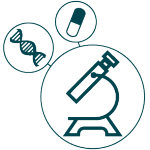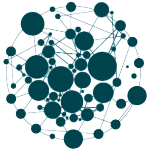 |
- Medication brought to phase 3, the results of which are imminent, to cure lupus, an autoimmune disease that affects more than 5 million people
- 10 children suffering from heart defects have already been cured thanks to Strasbourg-based research: new technology created by the European company Xeltis uses Jean-Marie Lehn’s research to make cardiovascular implants made from polymers that grow with the child, avoiding the need for multiple risky operations
- Treating multiple sclerosis, asthma, Crohn’s disease, Sjogren syndrome, Parkinson’s and psoriasis thanks to possible medication within five years
- Medalis helped create 6 working start-ups for effective technology transfer against cancer and inflammation thanks to a unique synergy of skills in biology, chemistry and medicine
|



